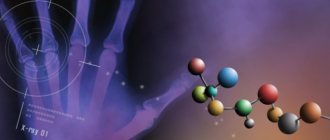Perhaps there has never been such a popular concept in history as stress, which has entered into all areas of knowledge. It is a current subject of research in such fields of science as biology, sociology, medicine, and psychology. In general, stress refers to a nonspecific reaction of the body that occurs in response to all kinds of extreme situations. What types of stress are there and how they can be prevented are discussed in this article.
The pencil is crumbling
Description of types of stress, their characteristics
Classification of stress can be based on different principles.
According to the type of stressors, the following types of stress are distinguished:
- Physiological – reaction to pain, exposure to extreme temperatures, sublethal doses of poisons, etc.
- Psychological – caused by events that are traumatic for the psyche. In psychology, this type of stress is further divided into informational and emotional subtypes.
Information stress is a problem of modern society. The 21st century is recognized as the century of the “information explosion”. The acceleration of the pace of life, the widespread use of mobile and media means that the psyche has to process huge amounts of information every day. Such a load often exceeds the capabilities of the human psyche, even with his great interest in everything that happens.
Information overload is one of the causes of stress
Emotional stress is associated with the experience of negative emotions in response to events that acutely or long-term limit the satisfaction of the social or biological needs of the individual (being in a life-threatening situation, loss of loved ones, financial troubles).
Additional Information. Psychologists have identified professional stress, which arises in response to stressful situations in a person’s work activity, as a separate category. Stressors include insufficiently clear restrictions on powers and job responsibilities, a high level of responsibility, monotonous activities and lack of prospects for career growth, high competition, and inappropriate behavior of colleagues. Miners, police officers and high school teachers take the first place in terms of the risk of developing stress; according to other scientific studies - general workers and office managers.
Occupational stress is included in a separate section in the International Classification of Diseases
Also, based on the quality of their impact on the human body, the following forms of stress are distinguished:
- Eustress is a beneficial type of stress in which the functional reserve of the body increases. For example, mobilizing a student’s strength before an exam.
Note! Eustress sometimes refers to stress caused by positive events and emotions (the birth of a child, a wedding, receiving various kinds of awards). The nature of stress is such that it does not matter to the body whether the situation that has occurred is pleasant or unpleasant for a person. What matters is the intensity of the need for mental restructuring.
- Distress is a negative form of stress. It develops when the body cannot adapt to a stressful situation and its resources are depleted.
Based on the nature of its occurrence, the following categories of stress are distinguished:
- Acute stress occurs when there is unexpected and intense exposure to a stimulus. For example, in case of an unexpected attack, earthquake. It is characterized by disorganization of human behavior (throwing aimlessly or freezing in one position) and/or the occurrence of acute somatic disorders (hypertensive crisis, myocardial infarction).
- Chronic stress occurs when a person remains in a stressful situation for a long time. For example, constant conflicts in the family, problems at work.
Content:
- 1 How can you find out if you are stressed?
- 2 What are the characteristics of stress in women?
- 3 Features of stress in men
- 4 How to recognize childhood stress
- 5 The mechanism of stress development
- 6 Stages of stress and symptoms of each of them
- 7 In conclusion
First of all, the energy supply is consumed, and then the depletion of all systems begins. And, as a rule, an imbalance arises, which turns into immediate or chronic diseases. And since the immune system works in double-boost mode, because, on the one hand, the “stress hormone” is in charge, and on the other hand, the protective systems in its kingdom are collapsing one after another, the immune system does not have time to cope with external irritants. And then third-party infectious agents begin to behave extremely freely, because the body’s resistance is rather sluggish.
A person, feeling that his strength is running out, begins to eat intensely and take medications, and this also makes its contribution. Because it takes strength to fully digest food. And medications, as a rule, have a number of side effects and can, so to speak, finish off already weakened organs.
So whether stress is dangerous is up to each individual to decide, but the realities, if this process is ignored, are quite unpleasant.
What is stress from a psychological point of view?
Types of communication in psychology - what they include, its functions
There is a tendency among ordinary people to equate psychological stress with nervous tension. This is partly due to the meaning of the word in English – “tension”. However, this type of stress is not just strong mental anxiety. Hans Selye, who developed the theory of stress, understood it as a general adaptation syndrome consisting of three stages. Their brief description:
- Anxiety reaction when mobilization of adaptive capabilities occurs (available in limited quantities);
- The stage of resistance, when adaptation to new conditions is achieved through the tension of the functioning of systems;
- The stage of exhaustion, when the impact of the stress factor does not weaken, resources are depleted, and the adaptation system does not work. Prolonged stay at this stage (chronic stress) leads to serious disorders in the mental and physical condition of a person, including death.
Dynamics of stress
↑ Mechanism of stress development
The development of stress is fundamentally no different from germinating grain or developing the plot of an interesting book. There is a root cause, no matter what it is: the situation was expected or not planned, but arose.
There is a moment when a faceless event occurs - faceless for most people, but vividly reflected in one person or group of people. And here an interesting situation occurs. Further, the mechanism of stress development will be under the influence of events that happened to each person individually. That is, there is one event, even if it carries a sharp negative connotation, but each participant will develop his own stress scenario, because before this event, various situations occurred in life that will serve as fertile or unfavorable soil for the seed of stress.
How does stress appear?
Types of thinking in psychology, their characteristics and examples
General adaptation syndrome manifests itself at all levels: emotional, physical, behavioral:
- Emotional forms of stress include increased excitability, irritability, tearfulness, outbursts of anger, and nightmares.
- At the physiological level, stress manifests itself in the form of tense muscles, tics, rapid pulse, various pains, unexplained bouts of fatigue, difficulties in distributing and switching attention, frequent colds, and sleep disturbances.
Physiological manifestations of stress
- Behavioral symptoms of stress include eating disorders (decreased appetite or, conversely, excessive consumption of food), increased cravings for psychoactive substances (alcohol, nicotine, etc.).
Symptoms
- Memory impairment
- Inability to concentrate
- Constantly feeling tired
- Common mistakes
- Increased excitability
- Fast speech
- Increased anxiety
- Dissatisfaction with your job
- Losing your sense of humor
- Self pity
- Excessive stubbornness
- Insomnia
- Passion for alcoholic beverages
- Feeling of unsatisfied hunger or poor appetite
- Reduced pace of activity.
Naturally, all of the listed signs of stress may not be observed all together. The manifestation of several of them already indicates serious problems. In some cases, signs of stress are hidden behind pain of unknown etiology. Only an experienced therapist can distinguish them from the disease. However, some signs of stress take the form of actual diseases, such as hypertension, stomach ulcers, and arthritis.
Causes of stress
The following factors can trigger a stress reaction:
- External: living conditions, economic and political situation in the country, natural and man-made disasters, production factors, illnesses and injuries, relocation, death of a loved one, traffic jams.
- Internal: changing life beliefs and values.
- Influence of physiology: fatigue accumulated over a long time, unhealthy lifestyle.
What kind of mood does a person have - types in psychology
Typical types of stressful situations also include problems of interpersonal interaction:
- disapproval and criticism from others;
- situations of public speaking and social activity;
- conflict situations;
- uncertainty about the rules to be followed;
- situations of sexual contact;
- breakup of close relationships.
Important! The stress reaction is equally easily triggered by both real events and those that exist only in our imagination, essentially fictitious problems.
The cause of stress can be essentially anything that causes emotional discomfort in a person, “hurts”, “catches”. In psychology this is called the “law of emotional reality of the imagination.”
↑ Stages of stress and symptoms of each of them
You can diagnose stress either independently or with the help of a specialist, but in order not to thoughtlessly give your soul into the hands of a healer, it is worth understanding at what stage the stress is.
- Feeling of constant anxiety. Anxiety for children, for loved ones, for friends is a normal feeling that occurs periodically, but if it grows, then this is the first bad sign.
- There is a feeling of increased control, insomnia overcomes, and labor productivity drops. The body reacts this way because there is an imbalance.
- A stage of exhaustion that can smoothly develop into depression.
What types of stress can be prevented?
The occurrence of biological and acute stress cannot be avoided. All other types of stressful situations, even those caused by external, “objective” reasons, can be worked with.
There are methods for increasing stress resistance and neutralizing nervous tension that are available to everyone:
- Relaxation exercises: breathing exercises, meditation, yoga, auto-training, massage.
- Organizing a healthy daily routine. Work and rest should alternate. Intellectual stress is balanced by physical exercise and walks.
- Rejection of bad habits. They weaken the body as a whole and make it less resistant to stress.
By meditating, a person gains the ability to cope with stress
The psychological attitude decides a lot. Even if it is impossible to eliminate the source of stress, it is quite possible to learn to think differently about life events. Those who come to terms with the general instability of the world are much easier to cope with any, even unexpected, changes in life. You can gain useful skills in self-control and resolving interpersonal conflicts through stress management training.
↑ Features of stress in men
Men are even more susceptible to stressful situations, since social society places the lion's share of responsibility on them, without giving concessions if a man fails to cope with his responsibilities:
- husband;
- father;
- son;
- brother;
- boss
Representatives of the stronger sex are constantly under the yoke of obligation. And those who are not able to withstand this race either degenerate further or find solace next to a bottle of alcohol.
Among the physical ailments that indicate stress in men:
- problems with potency;
- infertility;
- obesity due to metabolic disorders;
- problems with the cardiovascular system;
- explanation.
Constant pressure comes not only from the family or society, the thought that a person should be successful and bring home a mammoth every day has long sprouted into the subcortex, and a man goes out hunting every day. But in most cases, he himself already runs in a vicious circle, like a hunted hare, and the conventionally designated rest is a new stressful event.
Since traveling to regions with diametrically opposite climatic conditions, with a sharp change in time zones and the constant accompaniment of abundant food and libations, can very remotely be called a change of scenery and relaxation.
Physiological stress is an elementary form of adaptation
The classification of stress is also based on the way adaptation processes are triggered. Categories of “simple” stress take into account a minimum set of influences – environmental factors, physical overload. The result is physiological stress.
This form implies an acute reaction of the body to the aggressive influence of the surrounding world. Sudden temperature changes, excessive moisture, prolonged lack of food or drinking water, piercing wind, excessive heat or cold - any such factor requires excessive mobilization. Triggers of physiological stress should also include excessive physical activity, typical of athletes, as well as dietary deviations provoked by excessive or insufficient nutrition (gluttony or fasting).
Popular psychology identifies a special food form of stress, which is provoked by poor nutrition (violation of the regime, inadequate selection of foods, excessive consumption of food or refusal of it).
Under normal circumstances, the physiological form passes without a trace due to the high endurance of the human body. However, in the case when a person remains in an uncomfortable state for a long time, his body ceases to adapt correctly and a malfunction occurs at the physical level - a disease occurs.
Video: Natalya Kucherenko, psychologist “A series of lectures on psychology. Lecture 12: stress"
Types of reactions
Stress factors cause a number of emotional and physical reactions in the body.
Types of emotional reactions:
- aggression;
- regular attacks of anger;
- irritability for no reason;
- resentment, tearfulness, self-pity;
- panic attacks, feeling of fear;
- difficulty sleeping.
Emotions can change, prolonged experience has the most negative impact on the psyche, the state turns into depression, apathy, and symptoms of neurosis appear. Successful resolution of a short-term stressful situation relieves emotional manifestations, but some types of stress require the help of a specialist.
Types of physical reactions:
- headache;
- fatigue;
- chest pain;
- dry mouth;
- problems with the gastrointestinal tract;
- increased or decreased appetite;
- tics, stuttering.
If the emergency threat disappears, then the physiological manifestations return to normal. With prolonged stress factors, symptoms become chronic and diseases develop.
Physical effects of stress
Many of the easiest symptoms to identify are not directly related to stress. But they manifest themselves most clearly under the influence of stressful situations and a large number of experiences. This is how the mechanism of the body works - all its parts depend on each other’s condition.
Perhaps most of the health problems caused by stress are peculiar physical symptoms, but they still have a difference. First of all, the consequences of stress can be expressed in the exacerbation of absolutely any chronic disease that has not caused problems for some time. The stress mechanism can trigger the emergence of other serious diseases that were not previously noticed. Such complications are treated together with stress, comprehensively, otherwise the treatment may not bring results.
The list of the most common disease-consequences includes:
- heart disease (tachycardia, ischemia);
- skin diseases (eczema, psoriasis);
- diseases of the stomach and the entire digestive system (obesity, digestive problems);
- deterioration of immunity;
- psychological disorders.
Video: Alena Topcheeva “Symptoms of Stress”











